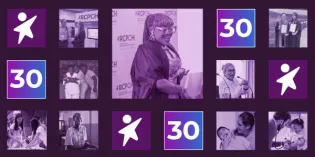A paper has now been published in The Journal of Clinical Endocrinology & Metabolism, and a link to the abstract is available below.
Lead investigator
Dr Rachel Knowles
Population, Policy and Practice Programme
UCL Great Ormond Street Institute of Child Health
30 Guilford Street
London WC1N 1EH
Email: rachel.knowles@ucl.ac.uk
Support group
About the study
Overview
Information was collected about the diagnostic tests and initial treatment of children screened for or diagnosed with congenital hypothyroidism between June 2011 and June 2012. Additional information was collected from doctors about each child’s health for three years after screening or diagnosis (until June 2015). This helped us to understand what percentage of babies had permanent or temporary (transient) CHT.
The UK has had newborn screening (using the newborn blood spot or heel-prick test) for 30 years. This study has shown that screening works very well but it has also led to improvements being made in the screening test.
You can download the protocol card for the surveillance study below.
Publications
Published papers
- RL Knowles, J Oerton, T Cheetham, G Butler, C Cavanagh, L Tetlow, C Dezateux, 'Newborn screening for primary congenital hypothyroidism: estimating test performance at different TSH thresholds', The Journal of Clinical Endocrinology & Metabolism, jc.2018-00658, https://doi.org/10.1210/jc.2018-00658
Published conference abstracts
- R Knowles, 'Newborn screening for congenital hypothyroidism: performance and outcomes of the UK programme', Endocrine Abstracts (2017) 51 S1.1, DOI: 10.1530/endoabs.51.S1.1
- RL Knowles, JM Oerton, C Dezateux, G Butler, P Griffiths, L Tetlow, C Cavanagh, T Cheetham, 'Initial diagnostic outcome of screening for congenital hypothyroidism after newborn bloodspot screening: a UK surveillance study', Arch Dis Child 2015; 100 (Suppl 3):A4 (P09). DOI: 10.1136/archdischild-2015-308599.9
Duration
June 2011 – June 2012 (13 months of surveillance).
Coverage
United Kingdom only (excluding Ireland).
Extended follow-up (2019-2026)
The researchers are now doing further follow-up to track the outcomes of babies in the original study who had a positive screening test or were diagnosed with congenital hypothyroidism between June 2011 and June 2012.
The aim of follow-up is to find out if children
- are still taking treatment for their congenital hypothyroidism
- how often they go to hospital and why
- had a hearing problem at the newborn hearing screen, and
- how well they are doing at school.
These questions will be answered using information already recorded in children’s medical and school records. Children and families will not be contacted and there will be no change to any child’s care.
Protecting confidentiality during the study and after
The researchers know the NHS numbers, sex and dates of birth of children in the study but do not know the names or addresses of any children. Public Health England, NHS Digital and the Department for Education will use the study information (such as NHS numbers, sex and dates of birth) to trace children’s records and provide some information from these to the researchers. The study team will only use de-personalised information and will not know the identity of any child.
After the study is finished in 2026, the information will be stored by the National Congenital Anomaly and Rare Disease Registration Service (NCARDRS) at Public Health England. All information held by NCARDRS is held securely and kept confidential. More information about NCARDRS can be found at https://www.gov.uk/government/publications/national-congenital-anomaly-and-rare-disease-registration-service-introductory-leaflet
Opting out
You should contact the research team if you
- want to find out more about the follow-up study
- want to know how to stop your child’s information being used in the follow-up study.
Email: rachel.knowles@ucl.ac.uk
Write to: Dr Rachel Knowles, Clinical Principal Research Fellow, Population, Policy and Practice Research and Teaching Department, UCL Great Ormond St Institute of Child Health, 30 Guilford St, London WC1N 1EH
Funding
NHS Newborn Blood Spot Screening Programme (NHS England).
Ethics and governance approval
The follow-up study has been approved by Cambridge South Research Ethics Committee (11/EE/0152) and by the Health Research Authority (ECC 3-04(k)2011).
Privacy information
UCL is the sponsor and data controller for this research study so is responsible for looking after your information and using it properly. The smallest amount of personally identifiable information will be used. We cannot withdraw or remove personal information from the study as this would make the research invalid.
If you want access to the information in your child’s NHS or school records, then you should contact your child’s NHS hospital/doctor or school.
The lawful basis for collecting and using personal information in this study is article 6(1)(e) and article 9(2)(j) of the GDPR which allows us to process personal data when it is for scientific research in the public interest.
If you have further questions, the UCL Data Protection Officer (DPO) can be contacted by email: data-protection@ucl.ac.uk
If you wish to complain about the use of your personal information, then you should contact the Information Commissioner’s Office:
Information Commissioner’s Office
Wycliffe House
Water Lane
Wilmslow
Cheshire
SK9 5AF
Helpline number: 0303 123 1113
Email: casework@ico.org.uk







